French People Arr. Rude Podcast Show Notes
S1, E6: Banana Hammocks, Alle Vongole, Americano, Cocco Bello
Sean and Brandon are back with the best beaches in Italy travel tips, taking aim at Amalfi as Italy’s most overhyped beach destination. In this episode of French People Arr. Rude, they unpack Sardinia’s appeal, Sicily’s chaos, and the hidden beaches Italians don’t want you to find
What We Cover in This Episode
- Italian Beaches Stereotypes
- Puglia: In the Heel of Italy
- Sardinia: Island in the Med
- Sicily: Italy’s Wild Side
- Rome to the Amalfi Coast
Resources Mentioned in This Episode
- Best Beaches in Italy to Visit This Year
- Where to Stay in Puglia
- Where to Stay in Sicily
- Where to Stay on the Amalfi Coast (including Capri)
- Best Beaches Along the Amalfi Coast
- Top 14 Things to Do on the Amalfi Coast
Best Beaches in Italy Travel Tips – Podcast Show Notes
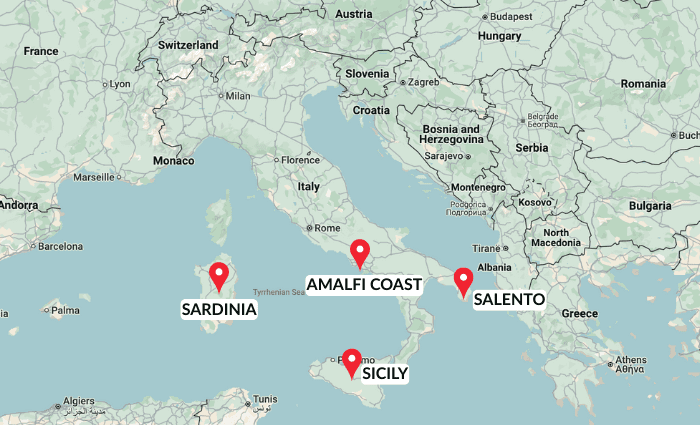
Segment 1: Italian Beaches Stereotypes
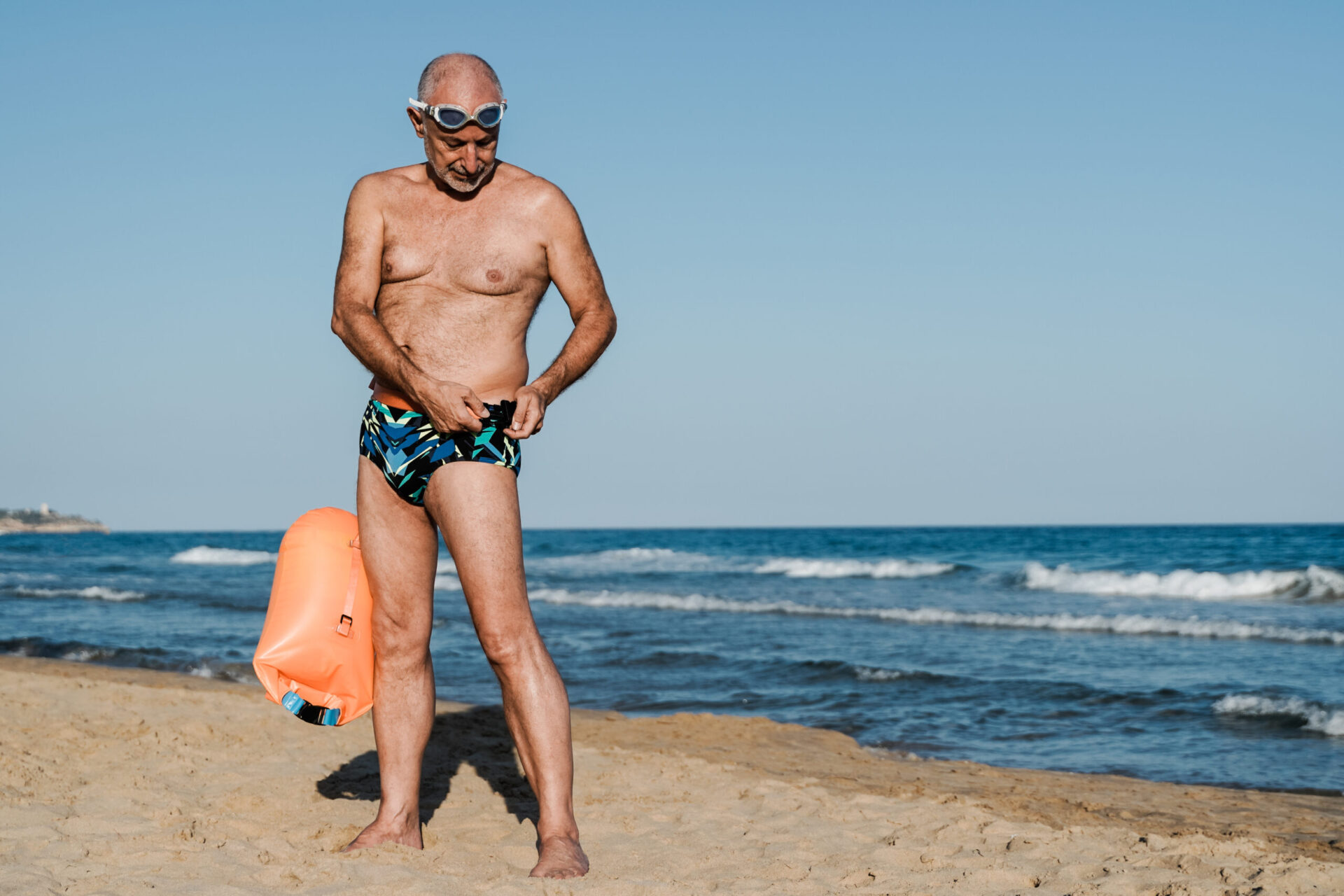
- Topless Women: True. Yes, they’re topless, but don’t go in expecting a Victoria’s Secret runway show. Italian beaches are a mix of all ages and body types.
- Italians Wear Speedos: True. The banana hammock is alive and well in Italy.
- Italian Women Are “Hot”: True. Great diet, tons of walking, and a flair for style—what’s not to love?
- Italians Rent Beach Chairs: True. It’s a firm belief here: why carry your own when someone else can do it for you? Some rentals are expensive, others aren’t.
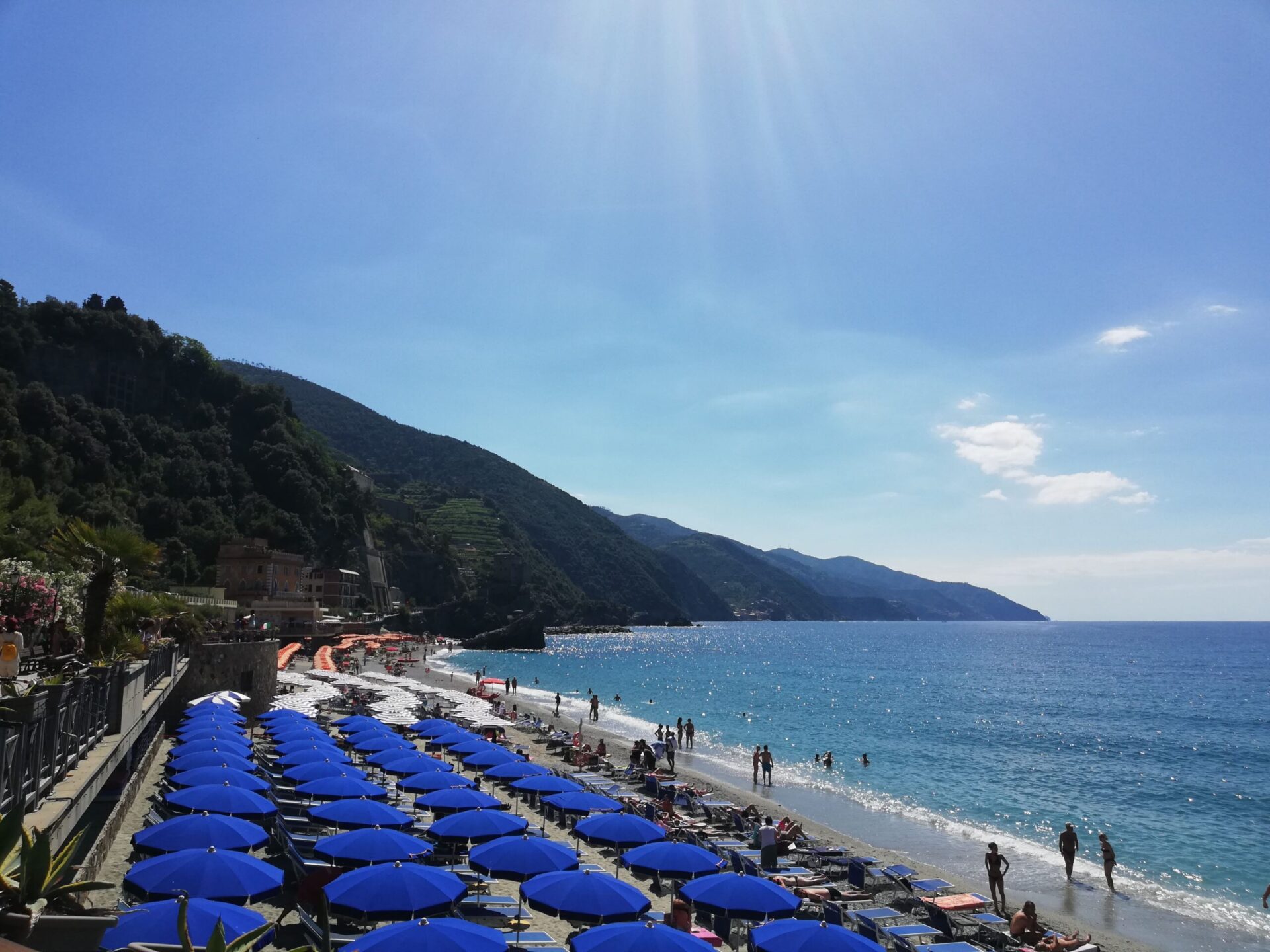
- Food Is Amazing: True. It’s the same glorious Italian cuisine you know, just with an ocean breeze. Go for fresh fish and seafood.
- Water Is Warm: Yes, but it’s not tropical. From June to September, the sea hits that sweet spot between refreshing and comfortable.
- No Sandy Beaches: False. Yes, many are rocky, but sand lovers can head to Sardinia or Puglia. That said, don’t skip the stony stretches; they’re often less crowded, and the water can be unbelievably clear.
Not ready to book a tour? Check out our Italy Travel Guide for more resources.
Region 1: Salento (Puglia)
Salento is the southernmost part of Puglia, sitting right in the heel of Italy’s boot. The west coast has calm, shallow waters and soft sandy beaches, while the east coast is more rugged, with cliffside beach clubs and rocky coves.
West Coast
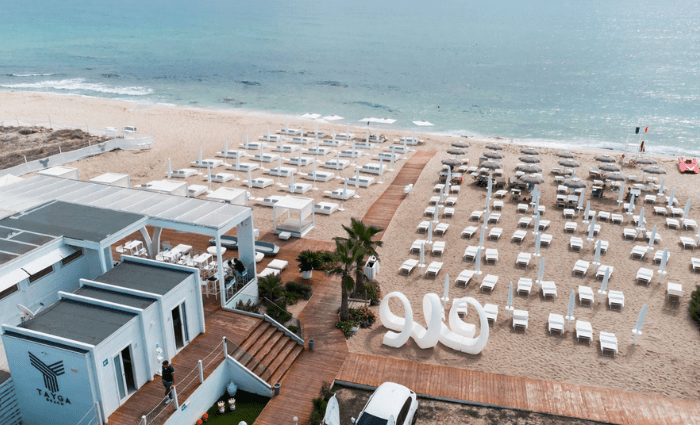
- South of Taranto: Tayga Beach, Borraco – Wide-open stretches of sand, calm water, and perfect for those seeking amenities without the constant party.
- Gallipoli: Coastal town known for its nightlife and high-energy beach scene. If you’re looking to party, this is the place to be.
- Punta Prosciutto & Lido Tabù: Long beaches, shallow water, and beach clubs perfect for posting up.
East Coast
- Lido Morelli & Lido Bosco Verde: Spacious, clean, and serene. When the sun goes down, swing by LullaBay if you’re craving a post-beach hangout.
- Torre Canne: Cala Maka is upscale and worth every euro for those seeking luxury.
- Baia dei Turchi: A bit of a trek to get to this beach, but it’s gorgeous. Pack some snacks and make a day of it.
Planning Your Trip to Puglia
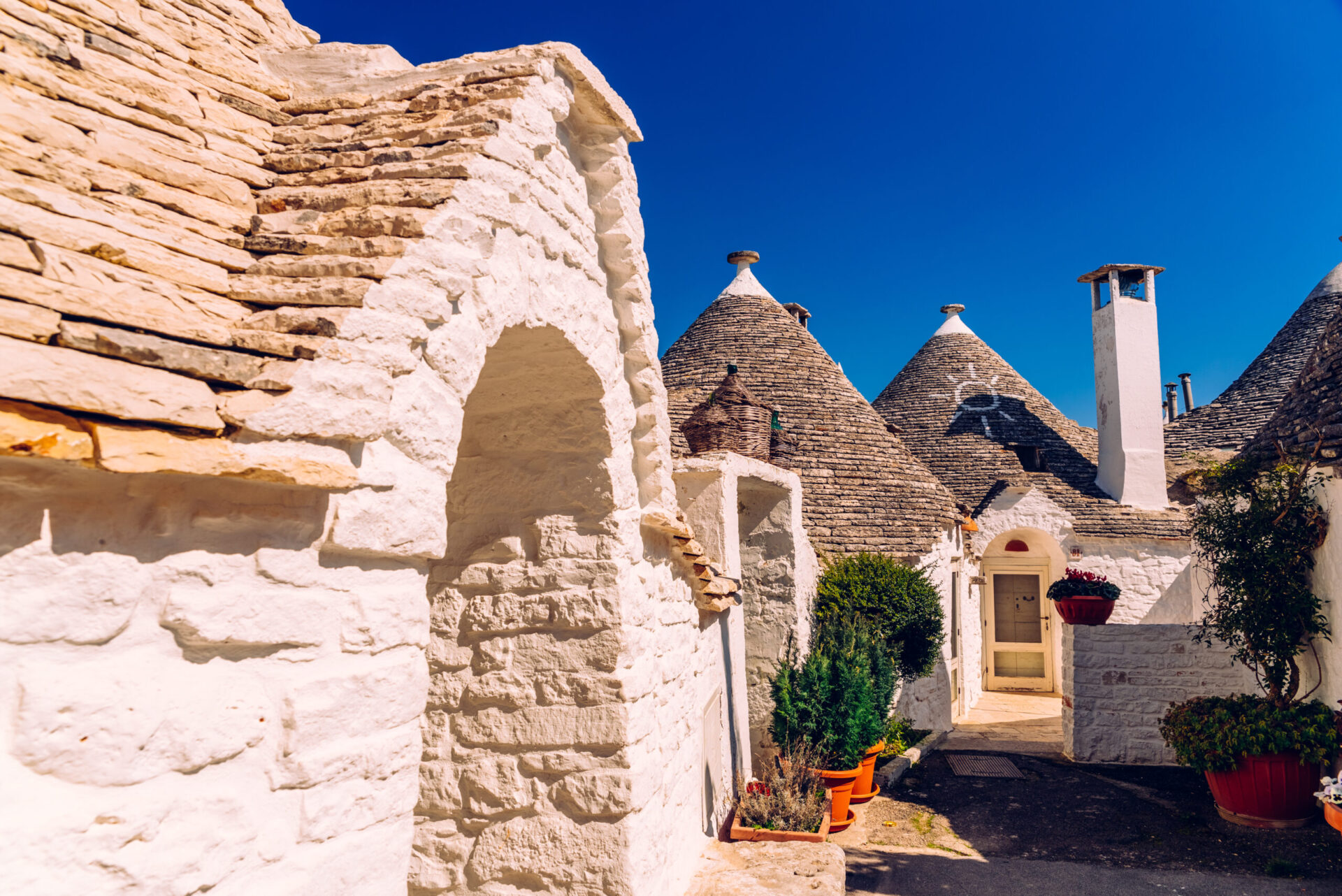
- Where to Stay: Use Taranto as your base and book a villa with sea views just outside the city. You’ll get space, quiet, and easy access to both coasts.
- How to Get Here: Fly into Brindisi or Bari, or take the train from Rome or Naples. You’ll need (and want) a rental car to explore the coastline properly.
- How Long to Stay: A week is perfect. Pick one spot as your base and day-trip from there, or split your time between two areas—but no more.
- What to Eat: Raw shellfish, aka crudo, is a must. Don’t overthink it—just order it.
- When to Go: For the ultimate beach weather, July and August are your best bets. April to June and late September to October are also great options, but the weather can occasionally play up. Winter should be avoided if your main goal is a tan.
- What to Do: Beach-hop, stargaze, eat everything, and take day trips to spots like Alberobello (the trulli town) and Matera (hilltop town with cave dwellings). Also, drink lots of Primitivo.
Still figuring out where to base yourself? Check out our article on the Best Places to Stay in Italy.
Region 2: Sardinia
Sardinia is a lush and rugged island just south of Corsica in the Mediterranean. If you’re looking for a beach trip with a little more space and a lot less chaos, this is it.
Costa Smeralda
Where the glitz lives—yachts, designer boutiques, and beach clubs with rosé for days. It’s undeniably stunning and over the top.
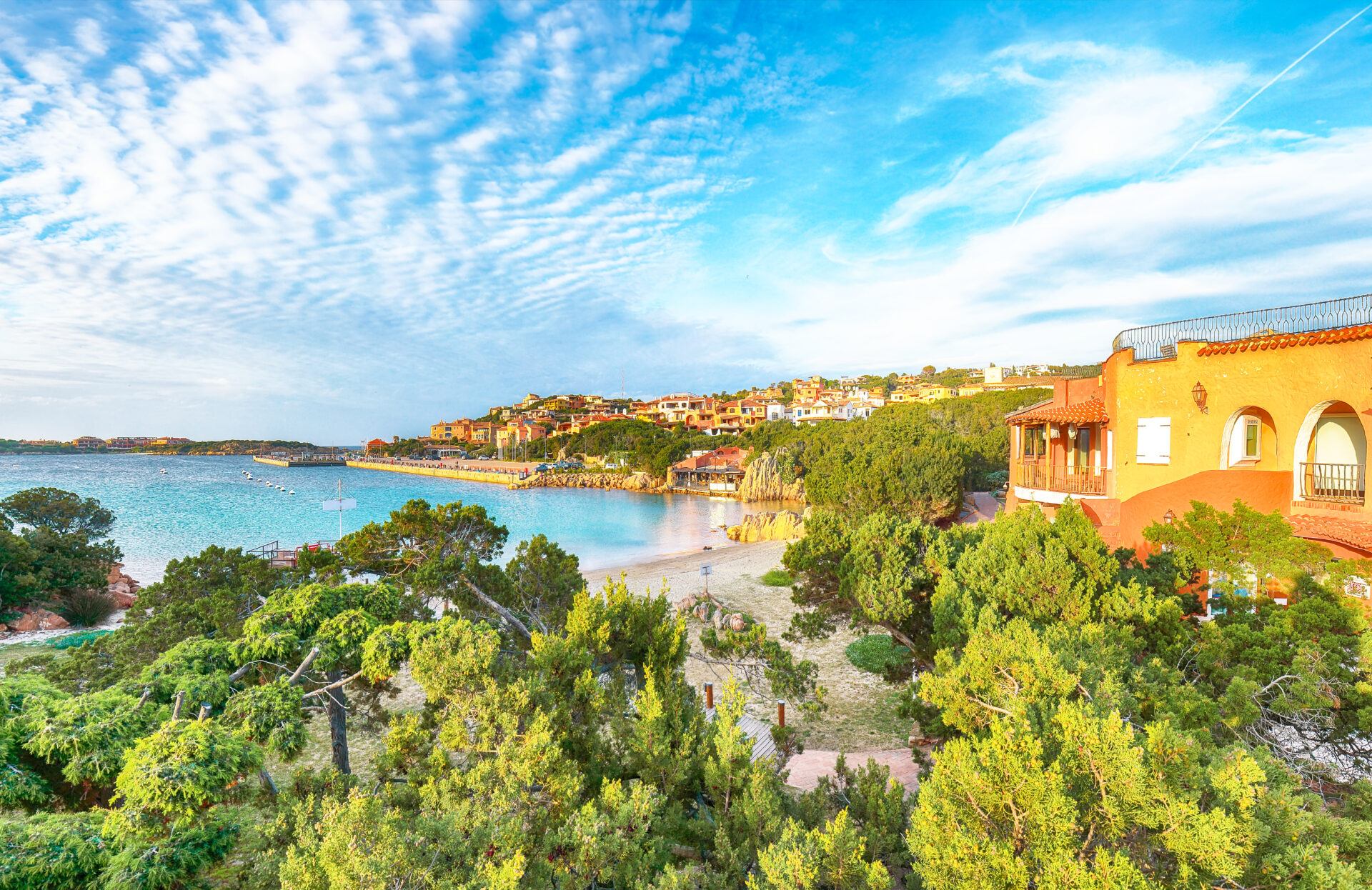
- Porto Cervo & Surrounding: Ridiculously nice (and pricey), but if you stay inland and drive in, you can enjoy the high life without going broke.
- Maddalena Archipelago: A cluster of islands with some of the clearest water you’ll ever see. Rent a boat and spend the day hopping between beaches.
- Santa Teresa Gallura: Charming coastal town with great views and easy ferry access to Corsica. More chill than Porto Cervo.
Costa Paradiso
A quieter, more budget-friendly alternative to Costa Smeralda. The beaches here are rocky, so you’ll want to rent a gommone (rubber boat) and explore coves you can’t reach by car.
Planning Your Trip to Sardinia
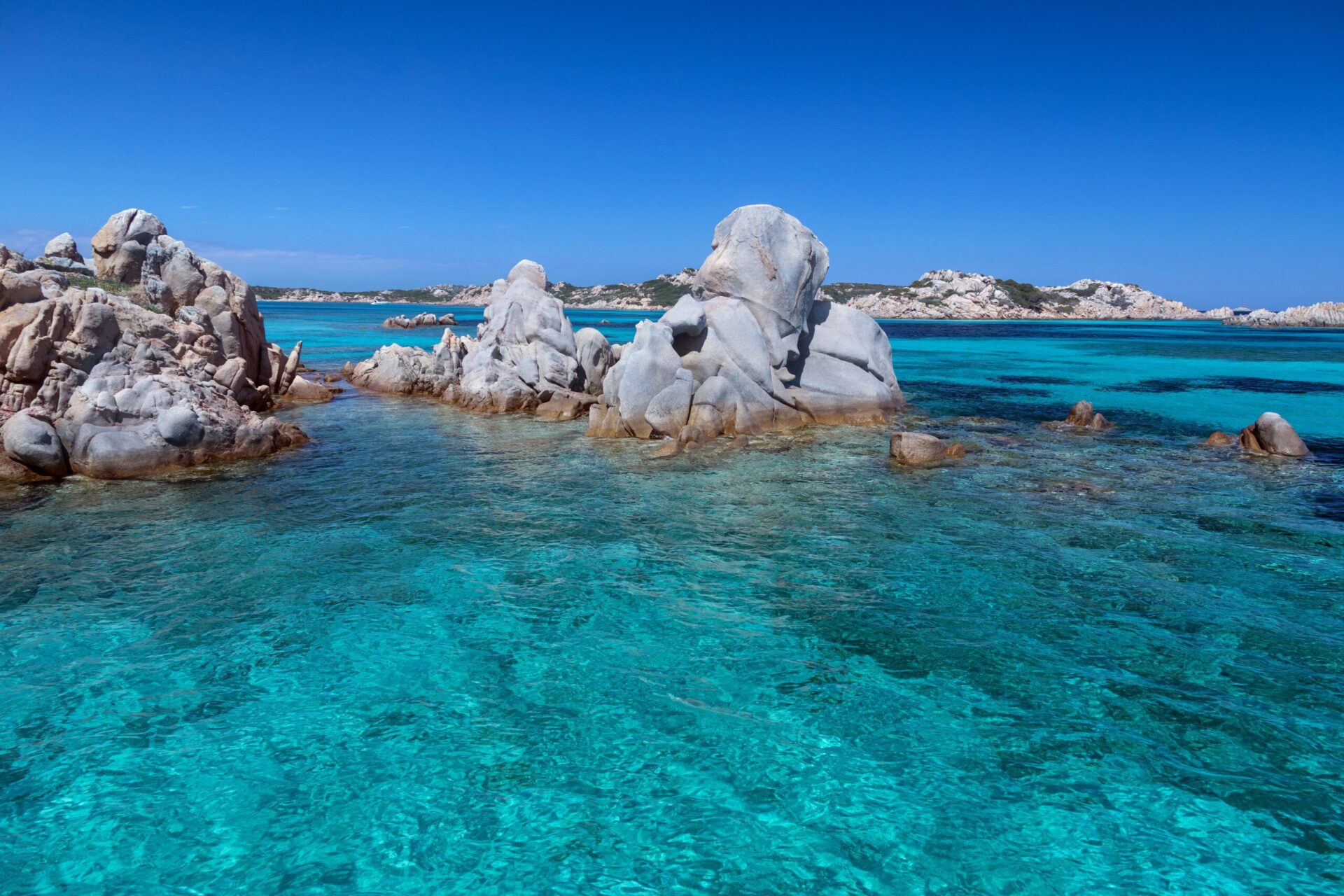
- How to Get to Sardinia: Take an overnight ferry from mainland Italy or catch a plane into Olbia if you’re aiming for the north. There are three main airports on the island, so choose the one closest to where you’ll stay, then rent a car.
- Eat: While beachside fish dishes are a treat, Sardinia is actually famous for its meats. Head inland to an agriturismo (farm stay) and order whatever they’re grilling.
- How Long to Stay: One week on the island is ideal. If you’re traveling as a couple and pressed for time, a few days can still give you a taste of Sardinia’s highlights.
- When to Go: Summer is prime time for beach life, and surprisingly, it’s not overrun like some other Italian hotspots. If you come off-season, expect more scenic drives than sunbathing weather.
- What to Do: Relax. Swim. Rent a boat to explore Maddalena. Take slow drives to small towns. Use Google Maps to find random beaches. You can’t go wrong.
- Where to Stay: Go for a villa with sweeping sea views if you’re with family or a group, or book an agriturismo for a rustic (and delicious) escape. Hotels are fine, but they often miss the “island home” feel you’ll want.

Pitch us on your story by emailing Press@thetourguy.com
Region #3: Sicily
Sicily is Italy’s wild card, located just off the toe of the boot. It’s chaotic, beautiful, and a little unpolished. Come for the food, history, and spectacular coastlines.
Pro tip: Read our Sicily travel tips for more recs.
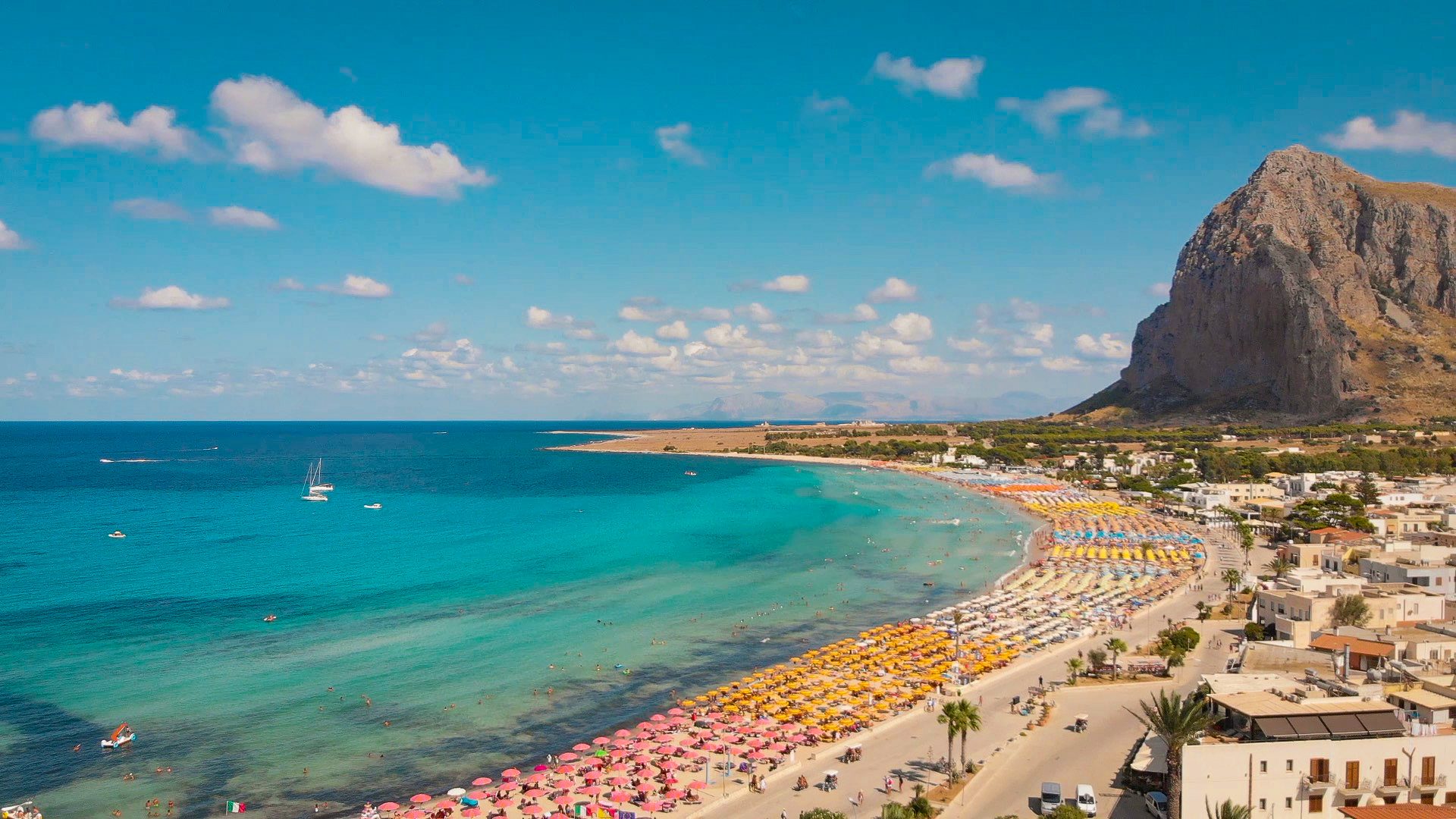
- San Vito lo Capo & Riserva dello Zingaro (Palermo): This is what people are talking about when they rave about Sicilian beaches. Soft sand, turquoise waters, and a nature reserve for those craving hikes along the coast.
- Marsala: Rent a small boat and explore beyond the salt flats. Then, treat yourself to a sunset aperitivo at Peola Stagnone.
- Isola Bella in Taormina: A pebble beach with famous views. Worth a quick visit if you’re already in Taormina, but don’t rearrange your trip just for this.
- Ortigia: There are no traditional sandy beaches on this historic island off Syracuse, but do as the locals do and jump off the rocks.
- Aeolian Islands: Again, no sandy beaches, but the volcanic landscapes are awe-striking. Rent a boat and make a day of it.
- Cefalù: One of Sicily’s best all-around beach destinations. Sandy, scenic, and paired with a charming town.
Planning Your Trip to Sicily
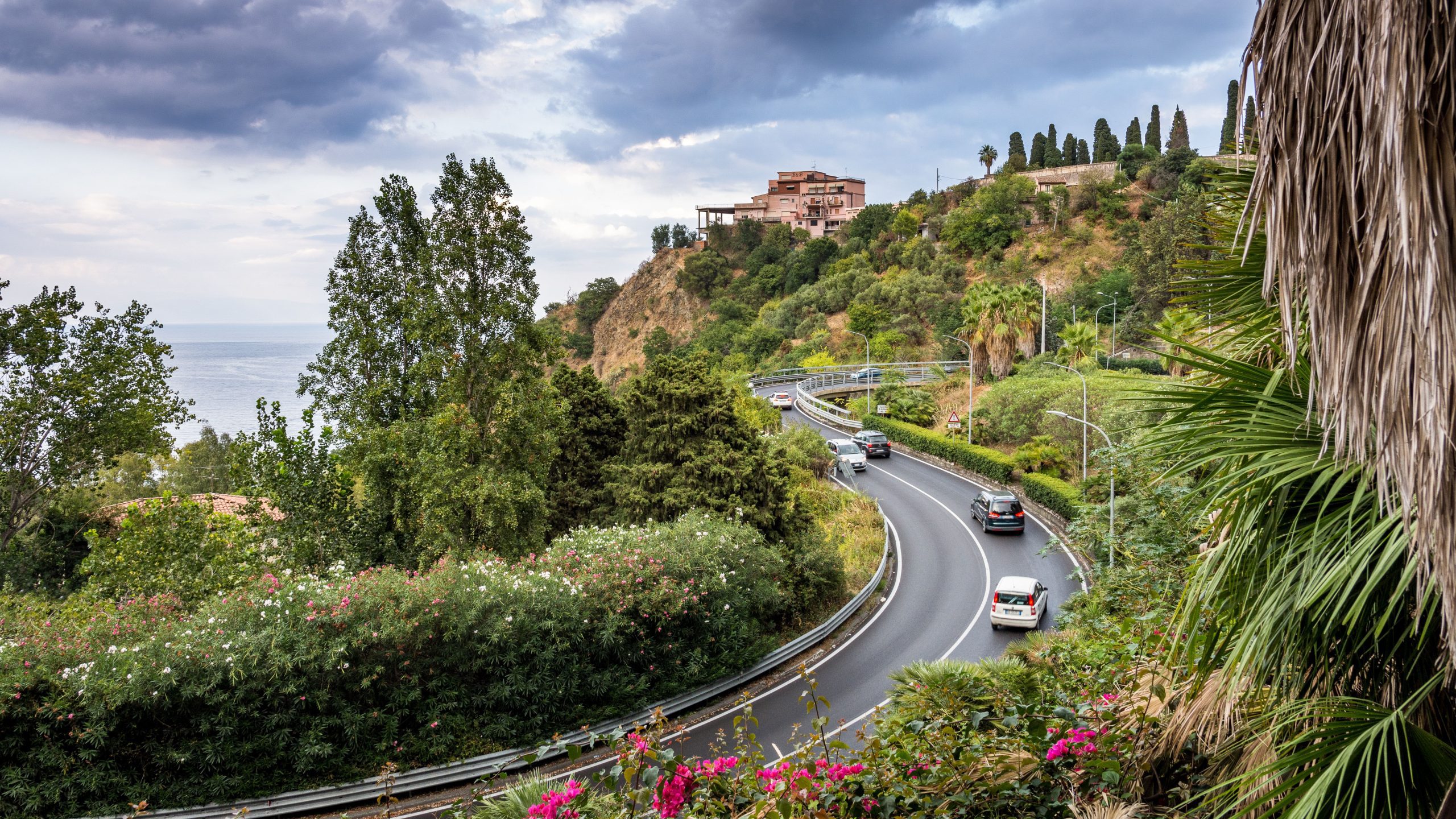
- How to Get There: Fly into Catania or Palermo, then rent a car. Many of the best beaches and towns are a pain to reach without one.
- How Long to Stay: At least a week, more if you can swing it. Sicily is too big and too spread out to be a side trip.
- What to Eat: Sicily is a food destination as much as a beach one. Look for seafood pastas, eggplant dishes, swordfish, and anything with pistachio. For something sweet, opt for granita or cannoli.
- When to Go: June through September promises sweltering hot beach weather. May and October are great for sunbathing and sightseeing but may be too chilly for swimming.
- Where to Stay: Book hotels in a few different areas—2 to 3 nights each is a great way to explore without feeling rushed.
- What to Do: Spend time in the water, wander a few towns, and leave room for long lunches and last-minute detours.
Not ready to book a tour? Check out our article on the Best Food and Drinks to Try in Sicily.
Region #4: Rome to the Amalfi Coast
There’s no denying that the Amalfi Coast is beautiful, but it’s also one of the most overhyped parts of Italy. Still, it’s worth seeing once; just don’t wing it.
Beaches Where Romans Go
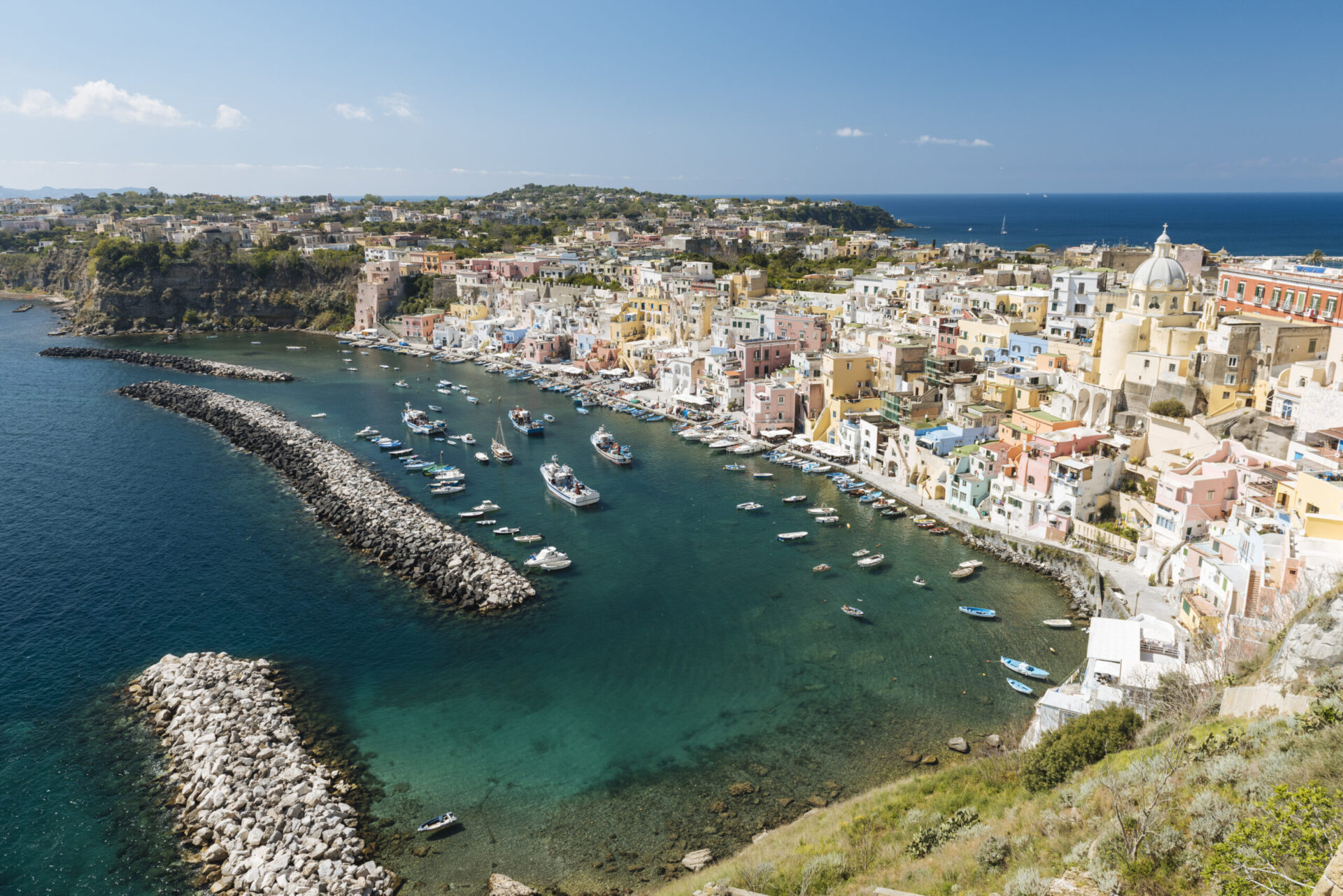
- San Felice Circeo: Low-key glamorous and mostly filled with Italian families and city escapees.
- Ponza: If you’ve got a couple of extra days, take the ferry. The island has incredible swimming spots without the Amalfi price tag.
- Fregenae: It’s not full beach day worthy, but it’s great for an evening drink by the water if you’re based in Rome.
Near Naples
- Ischia: Full of sandy beaches, natural hot springs, and a local feel that’s hard to fake. It’s a great option if you want something a little different from the polished Amalfi.
- Sorrento: Beautiful, easy to get to, and completely packed in the high season. Works well if you’re short on time.
Amalfi Coast
- Praiano: Quieter, with sunset views and rocky beaches you won’t have to fight over. A great home base if you want Amalfi with fewer crowds.
- Maiori: Underrated and somewhat local. It’s not polished, but it’s relaxed and has one of the longest stretches of beach on the coast.
- Positano: Gorgeous, but if you’re not staying somewhere central or arriving by boat, be ready for a lot of stairs and even more people. Worth a look, but not the best place to base yourself.
Planning Your Trip to the Amalfi Coast
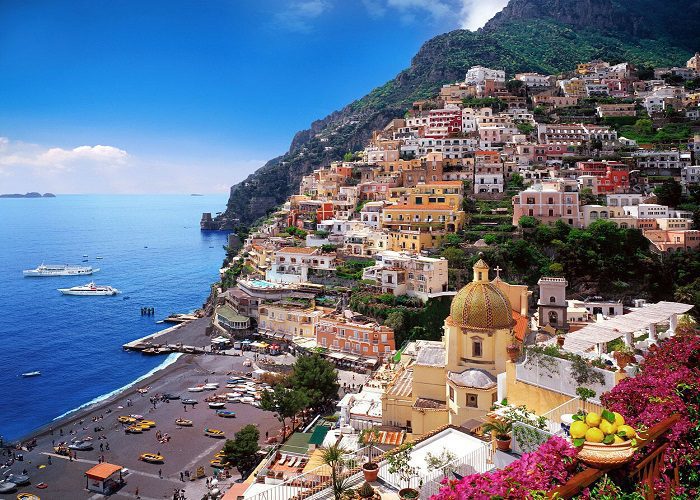
- How to Get There: Train to Naples from Rome, then hop on a ferry. A rental car is not the way to go here.
- How Long to Stay: Two or three nights is perfect. Add it to a larger trip that includes Rome, Venice, and Naples.
- What to Eat: Fresh seafood is a must. Try sea urchin pasta if it’s in season, and sip a chilled limoncello with a view.
- Where to Stay: Villas work great for a full week if you’ve got a group and a plan—otherwise, a short stay at a hotel is easier to manage.
- When to Go: Summer is hot, hectic, and expensive. Early spring or late fall are quieter but not always beach-worthy.
- What to Do: Hike the Path of the Gods, sip limoncello at a local vineyard, explore by boat, and if you’re feeling brave, try cliff jumping.
Not ready to book a tour? Check out our top articles on the Best Things to Do, Eat, and Where to Stay on the Amalfi Coast.












Leave a Comment